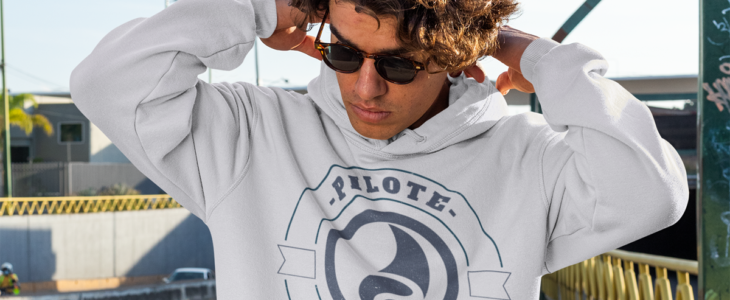
There is a certain boring sameness about shopping in malls around the world. Globalisation and the cult of branding has produced predictability and, to some degree, laziness in the retail space. The same shops in Dubai, Melbourne, London, Singapore and Atlanta – even the food courts have the same options.
There is anecdotal evidence that younger consumers are looking for something different – whether it be an experience or to support sustainable and independent businesses. But does the data really support this?
Shopify’s ‘Future of Ecommerce’ presentation – it’s too pithy and light to be called a report predicts that “Independent brands that improve their discoverability and fulfilment capabilities are poised to succeed.”
What is an Independent Business?
As with the rest of the presentation, the Shopify writers do not define what an ‘Independently owned’ business is. One definition is:
An independent business is a business that is free from outside control. It usually means a privately owned establishment, as opposed to a public limited company, the latter of which is owned by investment shares traded in the stock market. In many cases, independent businesses are sole proprietorship companies.
Given Shopify’s history. perhaps they are using independent as a proxy for size, though the numbers for small businesses are different for independent businesses. Even so the numbers are meaningless. 50% of consumers look for independently owned businesses to support. Which means 50% don’t.
It’s also unclear as to whether the research makes any distinction between buying from an independent merchant through a marketplace – like Amazon or buying directly. If I book my 3 star, family owned boutique hotel through Booking.com does that count as supporting an Independent business.
We suspect that this kind of nuance doesn’t exist in findings as Shopify defines marketplaces to be the same as a ‘Big Box’ retailer. Later in the report, the authors interchange the concepts of marketplace with large business. Terms like entrepreneurship are also conflated and used without context. After all, Elon Musk is an entrepreneur and some say so is Kim Kardashian.
Intention versus Reality
The idea that Millennials are going to save independent businesses seems to be a myth. Rather than a prediction, it is a hope. While many consumers say they want to support independent business, only 29% actually buy from them.
The presentation says that consumers shop at independently owned retailers because they want to support entrepreneurship, they are looking for unique products and they believe they get better customer service.
How Independent Shops can compete?
Here’s the pitch. The Shopify Fulfilment Network is designed to help smaller businesses offer Amazon style delivery options.
Online shoppers have been conditioned by early adopters that delivery should be free. It’s not surprising that when asked 60% of consumers say they would prefer free delivery – however 77% say that don’t mind if there are shipping charges.
Only 37% of consumers say they were frustrated by delays in shipping. Only 40% of customers believe that free returns would make online shopping better.
Note: Shopify Fulfilment is only available in the USA.
Conversational Commerce. Giving smaller online shops the same tools as the big guys.
With WhatsApp and WeChat being two of the biggest apps globally, it is not surprising that a growing number of customers are using Live Chat to aid the purchase journey.
Pitch 2 – Shopify Ping – the proprietary chat tool that integrates things like Facebook messenger into the online store admin which is now available for Android too! saw interactions increase 85% in the last 6 months.
This is a prediction that we agree with. Customers will continue to use Live Chat to make the online purchase journey more seamless, perhaps even more so for complex purchases and B2B ecommerce.
Of course Shopify does not have a monopoly on Live chat or Social Media shopping integrations. In fact, some of the SaaS processes that Shopify engage in make it harder to manage Facebook and Instagram catalogs.
Next up in this series – Authenticity, transparency. Are shoppers really looking for sustainability or is this just another positioning statement of hope?